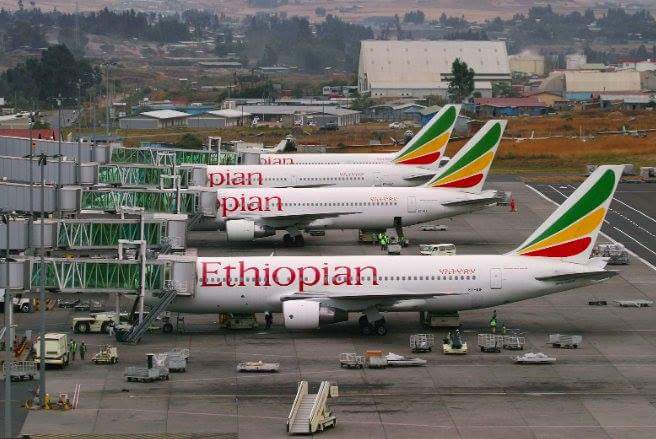Global partners are working to develop community currencies which will help cash-poor regions grow their own economies using blockchain technology.
The blockchain-based community currencies will be developed by an international partnership to supplement direct cash and voucher assistance programs for vulnerable communities in developing countries.
The two-year project will test, develop and distribute eVouchers, or Community Inclusion Currencies, held in mobile wallets on feature phones in some of the poorest areas where the national currency is scarce.
US$1 billion a year distributed by the Red Cross
The initiative will be delivered by the Norwegian Red Cross, Danish Red Cross, and Kenya Red Cross, together with Innovation Norway, Grassroots Economics Foundation and Sempo, an Australia-based technology firm.
The network will aim to improve the efficiency and effectiveness of the $1 billion a year distributed by the Red Cross in cash and voucher assistance programs by 2020.
“We need new financial solutions such as blockchain-based community currencies that can support the long-term resilience of marginalised communities, said Dr Asha Mohammed, Secretary-General Designate of the Kenya Red Cross Society.
“Regrettably, the bulk of direct aid flows out of communities too quickly to provide a lasting impact. With the Community Inclusion Currencies, we give an opportunity to activate key community members and resources that normally remain largely underutilized and outside the monetary economy. Community Inclusion Currencies are a globally replicable tool for communities to build resilience and fight poverty.”
Funding for the new platform was secured after feasibility studies in Tigray, Ethiopia and Kinango, Kenya, showed eVouchers could help local markets to keep capital within designated communities and improve household income by up to 50 per cent.
Other countries being considered for the initiative include Malawi, Zimbabwe, Cameroon, Papua New Guinea, and Myanmar.
The project has received more than US$1 million in funding from Innovation Norway, Aon, Dutch Postcode Lottery fund Stichting DOEN, and Danish logistics company DSV after earlier pilots funded by DOEN showed the community currencies were up to 20 times more effective than direct aid in producing sustainable impacts.
People affected by humanitarian crises
“Innovation Norway is proud to support the Community Inclusion Currencies project. The project has a high degree of innovation and addresses a significant issue in humanitarian response through humanitarian-private innovation partnership,” said Therese Marie Uppstrom Pankratov, head of the Humanitarian Innovation Programme at Innovation Norway.
“We believe the project has the possibility for significant impact for people affected by humanitarian crises.”
The community currencies will be securely held on a blockchain and available for users to exchange for basic needs within particular communities. They can also be used across networks of other connected communities with their own digital currencies, with every transaction transferred and updated on the blockchain.
Community Inclusion Currencies will be exchangeable with rotating “seed” funds between multiple communities and supported by stakeholders, such as the Red Cross, microfinance institutions (MFIs), and social impact investors.
In previous pilots, seed funds of roughly US$7,500 formed the collateral for US$30,000 of the community currencies, which circulated to generate local trade worth more than US$150,000.
“Norwegian Red Cross believes that technology can help us reach more people affected by crises, with the financial resources we have available today,” said Tørris Jæger, international director for the Norwegian Red Cross.
Traditional cash transfers
“To stay relevant, it is crucial that the humanitarian sector also invests in new and innovative approaches.”
Whereas traditional cash transfers are limited by the precise amount of money budgeted for a specific humanitarian intervention, the community currencies benefit from a common financing practice referred to as fractional reserve, which holds back a fraction of deposits for lending or liabilities.
At the same time, the community currencies can use blockchain transparency to continuously revalue the credits created, a process that monitors and applies leverage to the pool of seed funding.
Increasing the amount of credit and liquidity in an economy not only increases the amount of absolute credit available but also the velocity of money, or number of times the same eVoucher exchanges hands in local markets.
“We see every day that humanitarian needs are getting worse, and our ability to respond to them is being tested more and more. I applaud this kind of innovative approach to addressing not just the symptoms of a crisis but also some of the root causes,” said Francesco Rocca, President of the International Federation of Red Cross and Red Crescent Societies (IFRC).
The Red Cross, which is the largest distributor of aid after the UN, will aim to reach 320,000 users of Community Inclusion Currencies within the next two years. The project aims to generate US$50 million worth of eVouchers, ensuring that more than 50 per cent of users are women.
“Vulnerable communities do not lack demand, labour or creativity. They lack a medium of exchange to deploy their underutilized resources and an ability to generate financial capital themselves,” said Birgitte Bischoff Ebbesen, International Director of Danish Red Cross.
“This is what makes the community currency project so exciting. It offers the potential to provide a replicable economic, technical and social mechanism that enables communities to increase local trade by leveraging capital from cash transfer programming and private sector funds.”
Emma Karhan, Head of Public-Private Enterprise for Aon’s Reinsurance Solutions business in the UK, added: “As blockchain begins to deliver efficiencies and new ways of working in the private sector, we have an opportunity to apply this emerging technology for social impact. Aon is committed to exploring the opportunities with the Red Cross and its partners to provide parametric solutions for automatic payments around triggers such as cash flow or weather to support vulnerable communities.”











